“Early Bon Chretien, Delecta’s first pears of the season which are eagerly awaited in Europe due to low pear stocks, should have landed today but due to the slow tempo of shipping, the pears will only land in two weeks,” says Awie de Jager, managing director of Delecta Fruit.
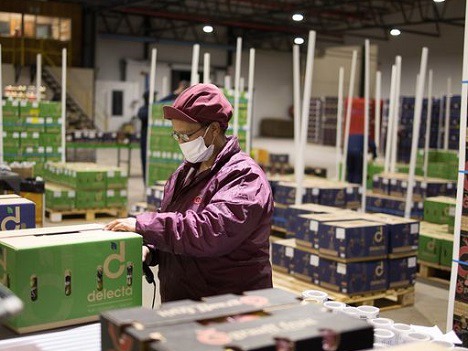 Photos supplied by Delecta Fruit
Photos supplied by Delecta Fruit
The pear harvest started three weeks ago with the South African pear crop forecast to be 8% higher this season, primarily due to a normal Forelle and Packham crop.
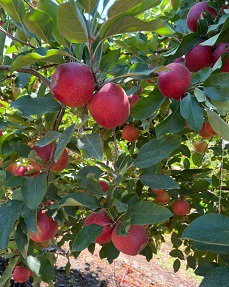 The harvest of Delecta’s first Royal Gala apples is to commence next week, about which they are quite optimistic as the crop developed under largely favourable production conditions thus far.
The harvest of Delecta’s first Royal Gala apples is to commence next week, about which they are quite optimistic as the crop developed under largely favourable production conditions thus far.
Right: South African cultivar Bigbucks, marketed as Flash Gala™, will be harvested within the next ten days
The current heatwave in the Cape has caused some sunburn, but so far it does not appear to be significant, and, in fact, the heat has been helpful for sugar development after a cool spring.
Middle East under pressure with plums
The plum season is in full swing, with volumes of plums and peaches much in line with last year (nectarine volumes expected to be 23% higher than last year, mainly driven by new plantings and good fruit set).
“We’re in a better market position regarding plums than this time last year since the shipping frequency has been more evenly spread thus far. As a result, the markets in the UK and Europe have been quite steadily supplied. On the other hand, the Middle East is under pressure with more South African plums and nectarines arriving close together because of omitting and delayed vessels,” he says.
“We are slightly on edge about plums and nectarines in the Middle East in the coming weeks.”
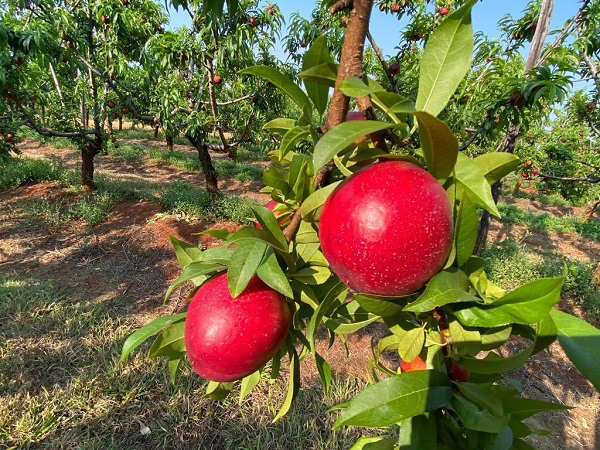 South African nectarines experienced good fruit set
South African nectarines experienced good fruit set
Omission of ports have become more frequent
Stonefruit being more perishable, the big challenge remains the period since its packing until its arrival.
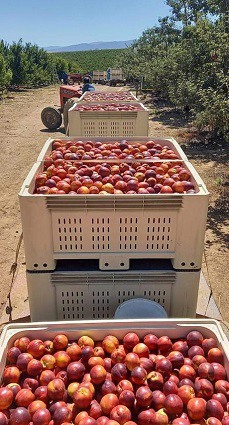 “The whole logistics chain has changed over the past 18 months and we’re seeing it in all markets and shipping costs have risen to all destinations.”
“The whole logistics chain has changed over the past 18 months and we’re seeing it in all markets and shipping costs have risen to all destinations.”
Right: bins of harvested nectarines in a Warm Bokkeveld orchard
Recently, for instance, a vessel on the European line omitted Cape Town because of the port’s backlog and the wind, so fruit for Europe had to leave from Coega.
“It happens with more regularity these days that vessels omit ports and where before we would have options at all three ports to most destinations, now often there’s one port, although loading for Europe does generally still take place in Durban, Port Elizabeth and Cape Town.”
Although there are vessels loading in Cape Town weekly, they also truck stonefruit to Port Elizabeth and Durban to a greater degree than was necessary in the past, to ensure optimal arrival timings.
India turns to South Africa
Awie observes that the recent drive towards sustainability may hold some advantageous spinoffs for South Africa.
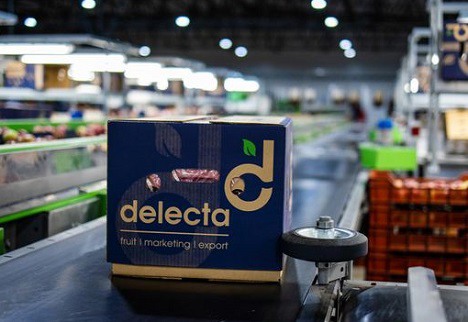
“Countries like India are shifting their purchase pattern to South Africa rather than procuring from South America as a way to bring down their carbon footprint. For us, that’s good news because it’s a relatively short route to India and our European routes are protected.”
Delecta has consequently seen more interest from India for, specifically, red apples like Royal Gala.
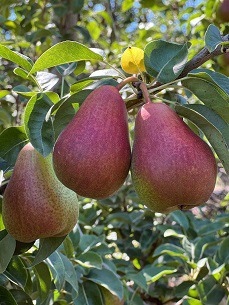 "There’s strong demand for Panorama Goldens in Africa, but we can see that Covid has sunk its teeth into the economies of Africa and our clients are under financial pressure.”
"There’s strong demand for Panorama Goldens in Africa, but we can see that Covid has sunk its teeth into the economies of Africa and our clients are under financial pressure.”
Right: Forelle pears are back to normal volumes this year
The opening of China for South African pears (dependent on a few final formalities) holds good prospects, he says, and Delecta Fruit will expand their pear footprint into China this season.
“We’ve been waiting a long time for the opportunity,” he notes.
“As an industry we’re all looking differently at the delivery of fruit. Risk management plays a much bigger role than in the past.” For more information:
For more information:
Awie de Jager
Delecta Fruit
Tel: +27 21 860 3999
Email: [email protected]
https://www.delecta.co.za/
